Dentures are a customized replacement for missing teeth that can be placed and removed from the mouth at any time. With dentures, you can speak, smile, and eat normally despite not having your natural teeth. While dentures are convenient and functional, they only work well when they are comfortable. Learning how to care for dentures is essential to their longevity and continuing effectiveness.
Why Should I Be Concerned About Denture Care?
Dentures will prevent the face from sagging by providing the necessary structure your mouth needs after losing teeth. If your dentures are not removed and cleaned frequently, they can cause a variety of oral health problems.
Oral problems associated with the use of dentures are often related to particle buildup. When you eat, food particles adhere to certain parts of the denture. Accumulated food leads to bad breath and inflammation of the oral tissue. When tough-to-remove particles collect in the area between the dentures and the gums, it attracts bacteria. Bacteria cause inflammation of the gums and surrounding tissues. This inflammation may develop into periodontal gum disease or mouth sores, also known as denture stomatitis.
How to Care for Dentures Effectively
Denture complications can be avoided through proper care. Try these seven tips to keep your dentures clean!
- Remove and rinse dentures after eating. Each time you finish a meal, you should remove the dentures and run water over them. The water will help to wash away the food debris from the hard-to-reach places. You can place a towel on the counter to make sure that the dentures don’t break in case you drop them.
 Handle the dentures with care. Be sure not to bend the plastic or metal attachments when cleaning, as this will affect your denture fit.
Handle the dentures with care. Be sure not to bend the plastic or metal attachments when cleaning, as this will affect your denture fit. - Clean your mouth after removing the dentures. Daily brushing is no less necessary than it ever was. In fact, cleaning your mouth regularly remains the single best way to protect yourself from oral problems. Use a soft-bristled toothbrush on natural teeth and a clean washcloth for the tongue, roof of the mouth, cheeks, and gums.
- Brush your dentures at least once a day. But dentures should not be cleaned with a normal toothpaste, which can abrade the surface. They should be removed from the mouth before any cleaning takes place. Use a soft-bristled brush that is designed for cleaning dentures. Gently brush the surfaces of the dentures and be careful not to damage any of the attachments.
- Soak the dentures in a cleaning solution. Soak your dentures in a cleaning solution to remove plaque and stains. Do not use bleach or hot water, as these can weaken the dentures and cause them to break. Your dentist can recommend a cleaning solution that is appropriate for your type of dentures. Studies show that immersing dentures in water with a cleansing tablet overnight significantly reduces the bacteria count. In other words, this is a very important step to prevent bacteria buildup in the mouth!
- Rinse dentures before placing them in your mouth. If using a denture-soaking solution, it’s very important to rinse them because the solution may contain harmful chemicals that can cause vomiting or pain.
- Consider ultrasonic denture cleaning. An ultrasonic cleaner involves placing your dentures in a small bath, where a sound wave is generated. The wave causes the dentures to vibrate, removing any debris that may be attached. An ultrasonic cleaner can increase the effectiveness of your regimen when combined with the daily cleaning solution method (#5).
Schedule Regular Dental Check-ups
It’s important to keep seeing your dentist on a regular basis, even if you no longer have your natural teeth. These visits allow the dentist to show you how to care for your dentures, monitor your oral health, and provide treatment if inflammation occurs in the gums. Prompt treatment will prevent these incipient conditions from becoming painful and costly.
We recommend dental checkups every six months for our patients with dentures. These checkups will help us to guarantee the longevity of each denture we craft. Dentures can lose their fit with daily use, but we can restore them at your next dental visit.
Penn Dental Family Practice specializes in comprehensive dental care for people of all ages, including older adults. Adults over age 60 are more likely to suffer from a variety of oral conditions, which makes it so important for people in this age group to receive consistent, quality dental services from a trustworthy provider. Penn Dental Family Practice is a leader in generational dental care, utilizing the latest technologies to help our patients to enjoy excellent oral health for years to come.
To learn more about dental replacement options, we encourage you to download our complimentary eBook on dental implants. You can also call us at 215-898-7337 to make an appointment at any of our convenient locations.


